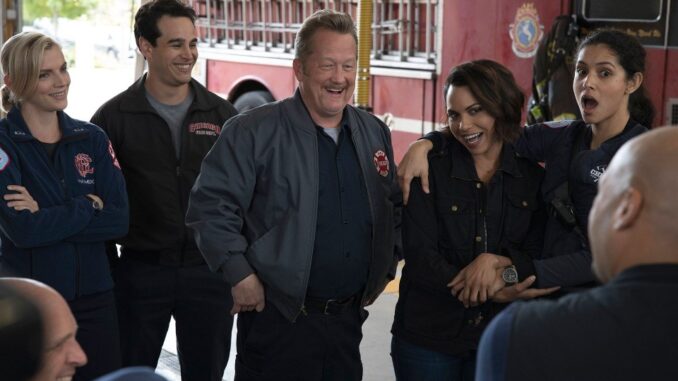
In the sprawling, often chaotic, yet undeniably vibrant urban landscape of Chicago, a television universe has not merely been built but has organically grown, much like the city it depicts. The "One Chicago" franchise, originating from the gritty heroism of Chicago Fire and branching into the stark realities of Chicago P.D. and the life-and-death stakes of Chicago Med, is a masterclass in shared storytelling. It's a universe that doesn't just expand through spin-offs but deepens its roots, making the city itself a character, and each show a vital, beating organ in a larger, complex organism. Simultaneously, its police procedural cornerstone, Chicago P.D., constantly evolves, shedding layers and embracing new challenges, reflecting both its universe's expansion and its own internal growth.
The expansion of the One Chicago universe is not just a matter of adding more shows to the prime-time lineup; it's about weaving an intricate tapestry of interconnected lives and institutions. What began with the everyday bravery of Firehouse 51 quickly revealed its broader implications. Firefighters often found themselves interacting with the police – thus, Chicago P.D. was born, showcasing the Intelligence Unit's relentless pursuit of justice. Then, the inevitable follow-up: where do the victims and heroes go when injured? To Gaffney Chicago Medical Center, leading to Chicago Med. This wasn't a forced, corporate expansion but an organic, narrative necessity.
Illustratively, the true genius lies in the mundane crossovers that build the world. A civilian rescued by Firehouse 51 in Fire might later appear as a witness in a P.D. investigation or be treated at Med. Molly's Pub, a beloved watering hole, serves as a common ground where characters from all three shows unwind, bicker, and share their lives, cementing the illusion of a single, bustling city. Major crossover events, often spanning all three shows over a single night, are less about stunt casting and more about exploring large-scale narratives – a city-wide epidemic, a massive multi-vehicle accident, or a complex criminal conspiracy – showcasing how each department plays its unique, yet intertwined, role in protecting the city. This constant intermingling fosters a sense of authenticity and familial connection, making viewers feel they are not just watching three separate shows, but observing the multifaceted life of Chicago through different, yet equally vital, lenses.
Within this expanding universe, Chicago P.D. has consistently served as its darker, more morally ambiguous heartbeat. The updates on Chicago P.D. reflect a show that is not content to rest on its procedural laurels but strives to delve deeper into the psychological toll of law enforcement and the evolving landscape of policing in America. For instance, the show has demonstrably shifted its focus from purely "case-of-the-week" structures to intricate, character-driven arcs that often span entire seasons.
One of the most significant updates has been the departure of Jesse Lee Soffer's Jay Halstead. His exit, while impactful, forced the show to explore new dynamics within the Intelligence Unit, particularly the profound effect on Hailey Upton, played by Tracy Spiridakos. Her subsequent journey through grief, self-doubt, and the relentless pursuit of justice, often through questionable means, has been a raw and compelling narrative. It illustrates the show's willingness to tackle the mental health struggles inherent in the job, showing how trauma can shape and sometimes fracture even the strongest individuals.
Similarly, the ongoing saga of Adam Ruzek and Kim Burgess has evolved from a tumultuous "will-they-won't-they" romance into a mature, co-parenting relationship shaped by shared trauma and unwavering loyalty. Burgess's recovery from her abduction and her embrace of motherhood, alongside Ruzek's steadfast support and personal growth, represent the show's commitment to showcasing the personal lives of its officers with depth and realism.
Meanwhile, Kevin Atwater's character continues to be a vital lens through which the show explores the complexities of race and policing. His quiet but firm commitment to ethical policing, even when it puts him at odds with the system or his own colleagues, has made him one of the show's most compelling and necessary voices. Sergeant Hank Voight, the moral enigma at the unit's core, also continues to evolve. While his "ends justify the means" philosophy remains, the show frequently challenges his methods, forcing him to adapt to modern policing demands while grappling with his own past and the impact of his actions on his team.
In essence, Chicago P.D. has updated itself by embracing a more introspective and character-centric approach, mirroring the broader universe's expansion not just in scale but in emotional and thematic depth. It's a universe that continues to pulsate with life, driven by the intersecting narratives of courageous first responders and the tireless pursuit of justice, ensuring that the lights of One Chicago remain brightly lit, forever expanding and evolving in the heart of the Windy City.
